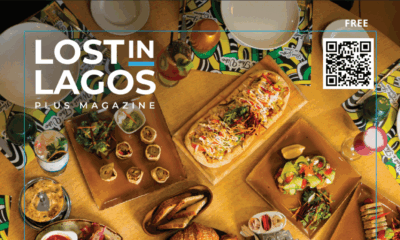Culture
‘The Culture Issue’: Lost In Lagos Plus Magazine Debuts Their Culture Issue
by Lost in Lagos Plus Magazine
A subtle renaissance blooms in galleries, ateliers, rehearsal halls, and roadside stages across Nigeria. A cultural rhythm; steady, defiant, and deeply rooted in heritage. It is beginning to hum louder, threading itself through fabric, gesture, music, language, and line. And now, the world is listening.
This issue celebrates not only the creators and custodians of Nigerian culture today, but also asks a pressing question: What would it take to fully own, export, and evolve our cultural power, with intention, not accident?
“How far na? Why have we become a people of parallel stories, brushing shoulders but rarely embracing, seeing each other’s colours but seldom feeling their weight. We know what NTA tells us, what Oshodi says in whispers, and what @theasovilla curates” But do we really know each other?
Do we know how a Kanuri family in Borno celebrates childbirth? How the Urhobo community mourns. What a Nupe love song sounds like. Why an Edo man must break the Kolanut in any gathering he’s in. Or why a Tiv stitch holds ancestral memory? And still, our culture is powerful.” Elvis Dante Osifo, the Editor-in-Chief of Lost in Lagos Magazine says in this refreshingly raw and reflective edition.

In this issue, Moriam Ajaga is trying to build systems that make creativity sustainable, by providing funding for cultural entrepreneurs and Wunika Mukan embraces quirkiness, encouraging collectors to step outside conventional boundaries. Nentawe Aaron Gokwat expresses a deep responsibility to hold space for stories that matter, while Oshobo Odion Peter designs for people who dare to take on space because OSHOBOR takes up space.
Chef Fatmata Binta is fighting food insecurity by restoring lost crops, and Ozoz Sokoh emphasizes documenting Nigerian recipes. Steven Tones wants to see global domination of the music space by Nigerian music, and king Africana wants his resilience and ability to never settle be the thing future designers get from him.

Check out their list of top 10 Places that Hold Nigeria’s Memory, and if you’re Lost in Nigeria, don’t worry, their event guide will lead you to the best places across the country.
Every month, a business is featured as the ‘Spot of the Month,’ and this month, NÓMAADA Restaurant takes center stage. This fine dining restaurant in Victoria Island, Lagos, is perfectly suited for friends, families and groups looking to enjoy new, exciting and eventful dining experience, and it blends Asian and Latin American cuisines in an innovative way that is sure to have every guest smiling for days.
Whether you’re jet-setting across continents or discovering hidden gems within Nigeria, this issue is your companion for reflective, joyful, and deeply human exploration.
Click here to read the latest monthly issue of the Lost In Lagos Plus Magazine now.
Top 10 Places That Hold Nigeria’s Memory
Nigeria’s rich tapestry of history and culture is woven through sites that have stood the test of time; places where traditions, empires, and spiritual beliefs converge. From ancient capitals to sacred groves, these landmarks preserve the stories and legacies that define our nation. This list highlights ten remarkable places that hold Nigeria’s memory.
- Osun-Osogbo Sacred Grove
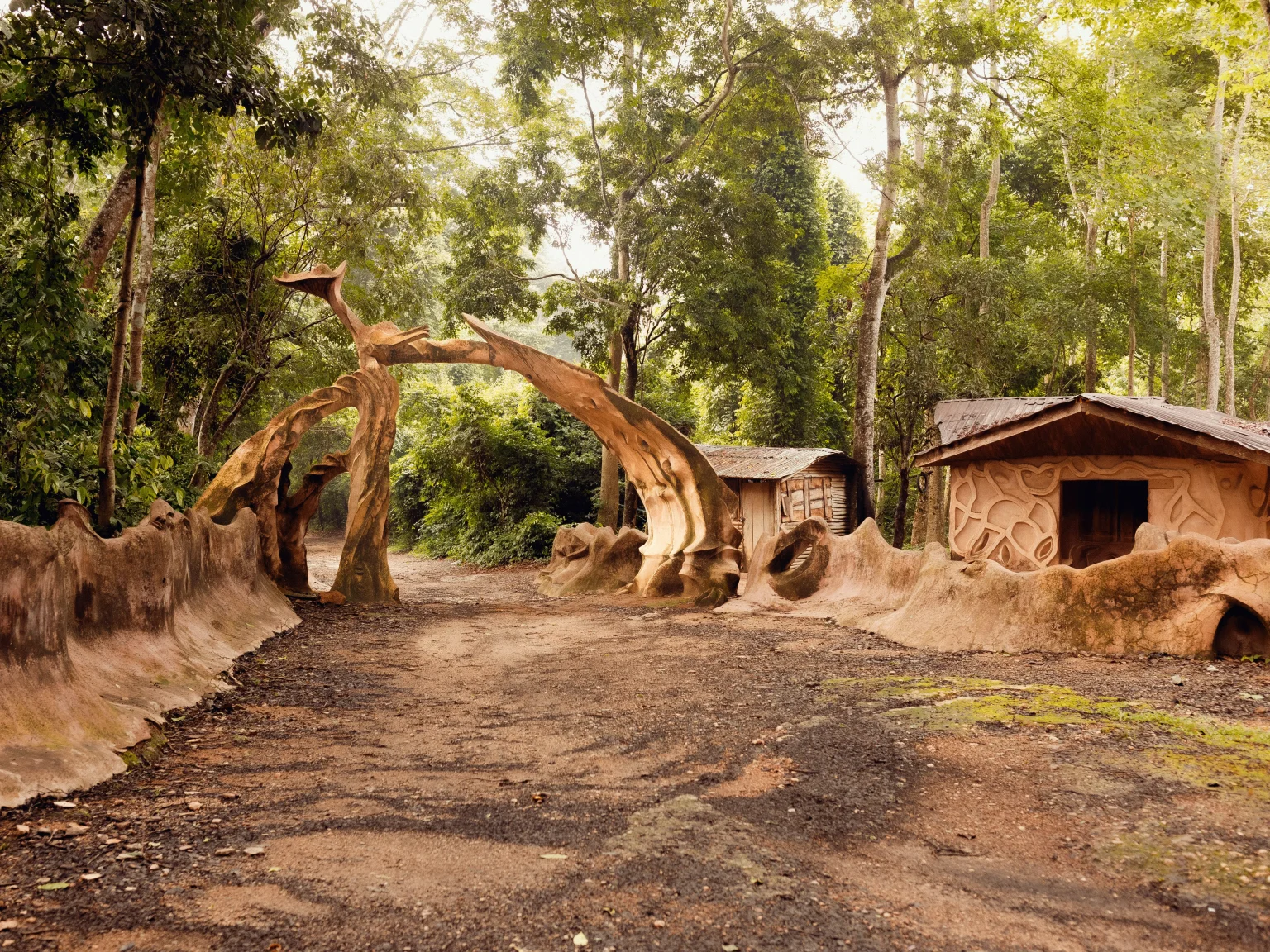
Tucked along the banks of the Osun River, the Osun Sacred Grove is one of Nigeria’s most important cultural landmarks. Recognized as a UNESCO World Heritage Site, the grove is both a peaceful forest and a powerful spiritual center. As you walk its winding trails, you’ll find shrines, sculptures, and sacred altars dedicated to Osun, the Yoruba river goddess.
Location: Oshogbo, Osun State
- Sukur Cultural Landscape
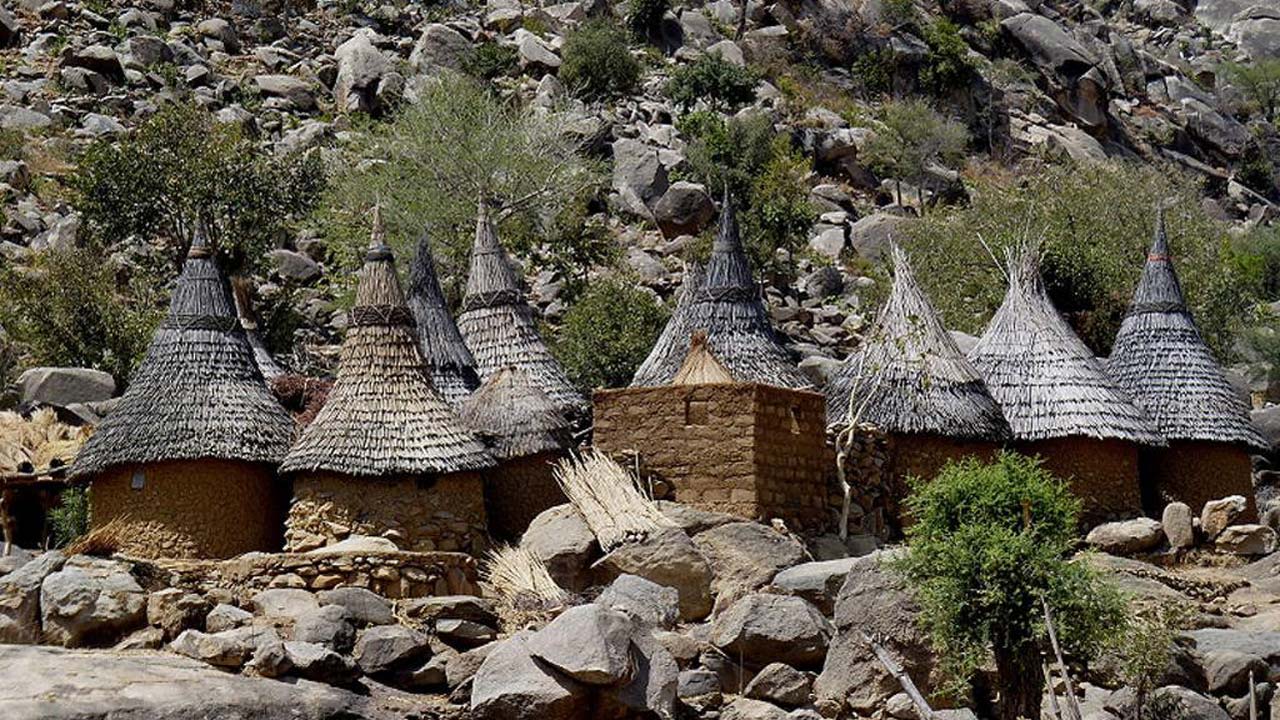
Perched high in the Mandara Mountains of Adamawa, the Sukur Cultural Landscape offers a rare look into Nigeria’s ancient past. Recognized by UNESCO since 1999, this stone-built settlement features terraced farms, a hilltop palace, and traces of old iron-smelting technology still visible today.
Location: Adamawa State
- Idanre Oke Hills

Rising from the rugged earth of Ondo State, the Idanre Hills hold the ruins of an ancient kingdom tucked among steep cliffs and winding paths. From the top, sweeping views reveal scattered shrines, old palaces, and stone-paved walkways linking history to the present.
Climbing the sacred steps to the famed “Thunder” shrine, visitors encounter myths of gods, giants, and a people shaped by the hills. It’s a place where nature protects the memory of power, faith, and tradition.
Location: Ondo State
- Ancient Walls of Kano & Gidan Makama Museum
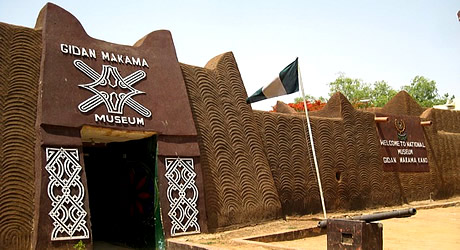
Once guarding one of West Africa’s great trade centers, the ancient walls of Kano still stand as a symbol of strength and strategy. These massive mud structures, built centuries ago, once enclosed a thriving emirate. Next door, the Gidan Makama Museum, a former royal residence tells Kano’s story through artifacts, regal attire, and rare manuscripts. It’s a quiet but powerful glimpse into the evolution of a city that shaped history.
Location: Kano State
- Old Oyo
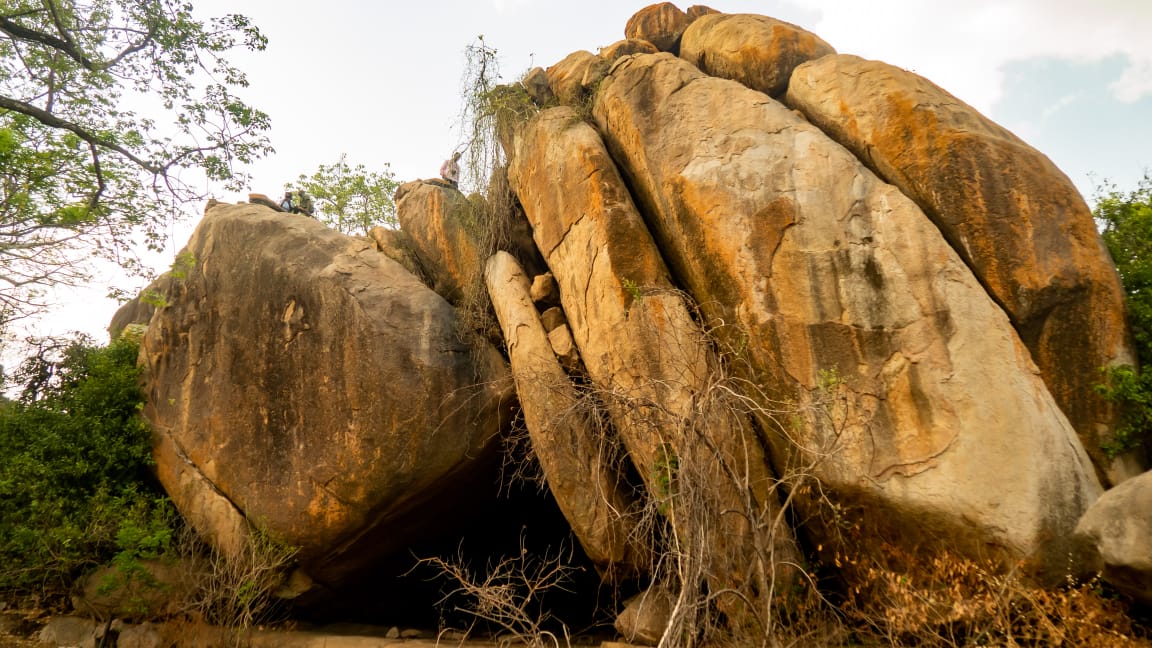
Deep in Oyo State lies Oyo-Ile, the former capital of the mighty Oyo Empire. Though now in ruins, its palace foundations, courtyards, and city walls still hint at the scale and influence of what was once the Yoruba world’s political center. Archaeologists continue to uncover royal relics, beaded regalia, pottery, and ritual objects offering clues to a past shaped by power, tradition, and ceremony.
Location: Oyo-Ile, Oyo State
- Benin City: City Walls, Igun Street & National Museum
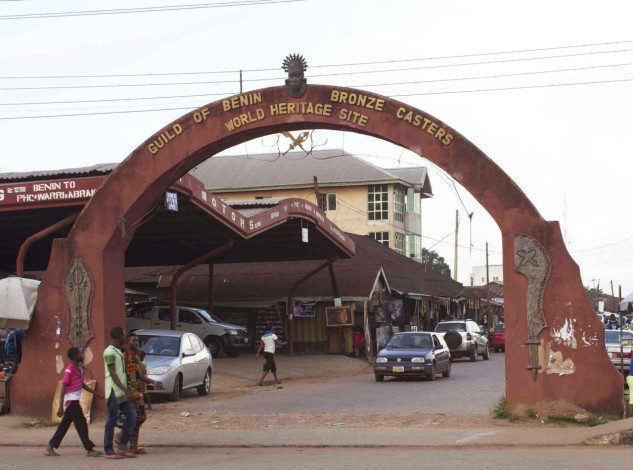
Once protected by the world’s largest medieval earthworks, Benin City remains a center of history and artistry. Along Igun Street, generations of bronze casters still mold intricate works for palace and ritual, preserving Edo tradition with fire and skill.
At the National Museum, sacred ivory masks and Oba regalia offer a deeper look into the kingdom’s royal and spiritual life. Together, these sites reflect a civilization built on craftsmanship, memory, and divine kingship.
Location: Edo State
- Arochukwu Long Juju Shrine
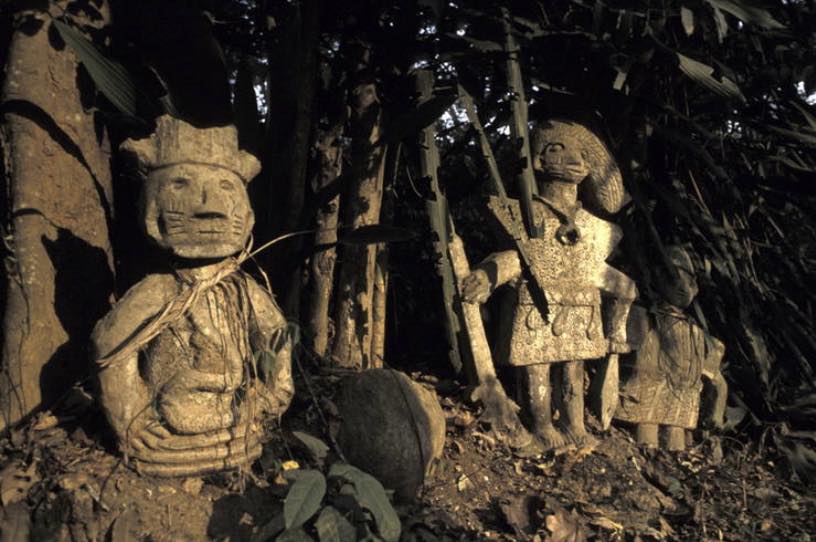
Deep in Abia’s rainforest, the long Juju Shrine once stood at the heart of the Aro Confederacy’s spiritual and judicial system. Pilgrims came seeking truth or favor, passing through sacred caves and hidden chambers steeped in mystery and ritual.
Though its courtly power ended with colonial rule, the site still holds carvings, altars, and paths that speak of Igbo cosmology and ancestral presence.
Location: Abia State
- Ooni’s Palace

In the ancient city of Ile-Ife, believed to be the birthplace of the Yoruba people, the Ooni’s palace stands as a symbol of spiritual authority and tradition. Its courtyards host time-honored rituals, royal gatherings, and cultural festivals that draw both locals and dignitaries. With its carved pillars and historic relics, the palace remains a living link to Yoruba origin stories and identity.
Location: Ile-Ife, Osun State
- John Randle Centre for Yoruba Culture
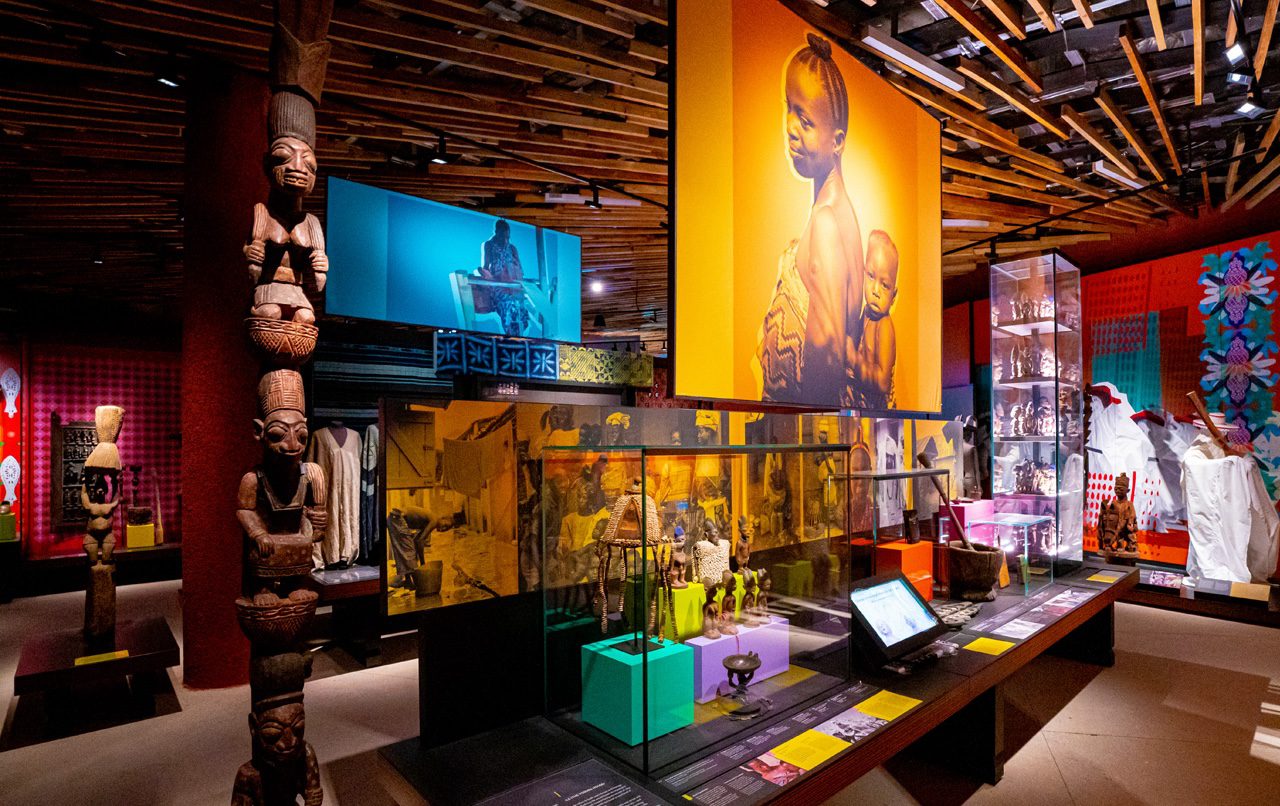
In the heart of Lagos, the John Randle Centre for Yoruba Culture blends tradition with innovation. Its bold architecture houses exhibitions, performances, and research that celebrate and preserve Yoruba heritage. From carved masks to textile art and diaspora stories, the galleries offer a rich, interactive experience. It’s a space where scholars, artists, and the public come together keeping culture alive in Nigeria’s most dynamic city.
Location: Lagos State
- First Storey Building

Standing since the 1840s, the first storey building in Badagry is Nigeria’s oldest surviving two-storey structure. Built by missionaries, it once served as both a residence and a colonial outpost during a pivotal era of change. Now part of the “Badagry heritage trail”, the building offers a sobering glimpse into Nigeria’s transatlantic past where faith, trade, and survival converged.
Location: Badagry, Lagos state
These places remind us that Nigeria’s history is not just long, it’s layered, complex, and deeply rooted. From ancient kingdoms to sacred forests, each site offers a chance to reconnect with where we come from and reflect on what it truly means to be African
Click here to read the latest monthly issue of the Lost In Lagos Plus Magazine now. To read more: visit awariapp.com or download the Awari App on the App store or Google Play Store.
BellaNaija is a Media Partner for Lost in Lagos Plus Magazine


